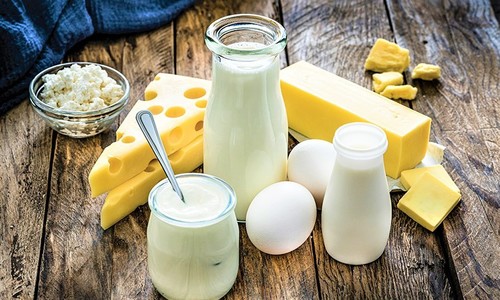There are many health products in the market that claim to help you lead a healthy life. But many of them are not even genuine and most of them do not even make sense. Health products that makes no sense Here are three health products that make no sense to me: Bamboo murabba for increasing height It is a sweet preserve made from bamboo shoots, sugar and spices. Ayurveda suggests that certain foods can help to promote height growth in children and adolescents. However, bamboo murabba is not one of them. Here are a few reasons why: Bamboo shoots do contain some vitamins and minerals, but they are not present in enough quantities to have an impact on height. Bamboo murabba is frequently cooked with a substantial amount of sugar, which may be detrimental to height growth. Overeating sugar can cause weight gain and obesity, which can actually slow down a child’s or adolescent’s growth. It is a processed food, and many of the nutrients in bamboo shoots may be lost during the cooking and preservation process. Additionally, some of the chemicals used in the preservation process may be harmful to health and could potentially interfere with height growth. According to Ayurveda, the development of a person’s height is influenced by both inherited and environmental factors, including diet and activity. Yet, because every person is different, some people might not react to specific foods or supplements the same way that others do. Overall, while bamboo murabba is a tasty and nutritious snack. However, it is unlikely to have a significant impact on height growth in children and adolescents. For optimal growth and development, it is important to focus on a balanced diet that includes a variety of nutrient-rich foods, as well as regular exercise and plenty of rest. Mango shake for weight loss According to Ayurveda, mango shake is considered a heavy and sweet food, which can have a negative impact on weight loss goals. According to Ayurveda, each taste has a specific effect on the body and should be consumed in moderation, depending on an individual’s body type (Prakriti) and health status. Mangoes are delicious, juicy fruits that are high in antioxidants, vitamins and minerals. Also, it contains a lot of sugar and calories, both of which might cause weight gain if drunk in excess. Mangoes add more calories and sugar to a shake when they are combined with milk and sugar. The mango shake’s sugar and fat content may inhibit digestion and raise blood sugar levels. This may result in insulin resistance and weight gain. According to Ayurveda, eating too many heavy and sweet meals can lead to an imbalance in the Kapha Dosha. This Dosha is in charge of maintaining the body’s structure, stability and lubrication. Kapha imbalances can cause sluggishness, weight gain and lethargy in the body. Mango smoothie consumption on a daily basis can irritate the Kapha dosha and raise body weight. Ayurveda advises ingesting foods that are light, dry and warm in nature rather than mango shake. These foods can aid in improving digestion, metabolism and toxin removal from the body. Fruits and vegetables like spinach, kale and broccoli, as well as grains like quinoa, millet and barley, are a few examples. In conclusion, mango shake is not recommended for weight loss due to its heavy and sweet nature, which can lead to an imbalance in the Kapha Dosha and cause weight gain. Instead, it is recommended to consume light, dry and warm foods that can increase metabolism and digestion. It is always important to consult with a healthcare professional or an Ayurvedic practitioner before making any changes to your diet or lifestyle. Lamp to replace sunlight According to Ayurveda, sunlight is a vital source of energy and life force. Ayurvedic texts highlight the importance of exposure to sunlight for maintaining good health and well-being. While lamps can provide illumination, they cannot replace the many benefits of natural sunlight. One of the key reasons why lamps cannot replace sunlight is because sunlight contains a broad spectrum of light, including ultraviolet rays, visible light, and infrared radiation. Each of these wavelengths has unique properties that are beneficial for health. For example, ultraviolet rays help the body produce vitamin D, which is essential for strong bones and a healthy immune system. Visible light stimulates the production of serotonin, a neurotransmitter that regulates mood and energy levels. Also, infrared radiation helps improve blood circulation and reduce inflammation. In contrast, lamps typically only emit a small spectrum of light, such as red light to encourage relaxation or blue light to encourage wakefulness. Despite the potential therapeutic advantages of these particular wavelengths, sunshine still offers the whole spectrum of light. Sunlight is a natural supply of Prana, or life force energy . That’s why such lamps cannot substitute for it. According to Ayurveda, Prana is the life force that supports all life and is in charge of ensuring that the body and mind are operating properly. One of the main sources of Prana is sunlight. Prana flows more freely through the body when exposed to sunlight. On the other side, lamps lack the same vitality-giving qualities as sunlight. In addition to its physical benefits, sunlight also has a psychological impact on the mind and emotions. Ayurveda recognizes that exposure to sunlight can help uplift the mood, reduce stress and anxiety and improve mental clarity. Lamps, however, cannot replicate the same emotional and psychological benefits as natural sunlight. In conclusion, while lamps can provide illumination, they cannot replace the many benefits of natural sunlight according to Ayurveda. Sunlight contains a broad spectrum of light, provides vital Prana energy and has emotional and psychological benefits. These lamps simply cannot replicate that. Therefore, it is important to prioritize exposure to natural sunlight as part of a holistic approach to health and well-being. Apart from the above… Continue reading Health products that do not make any sense









